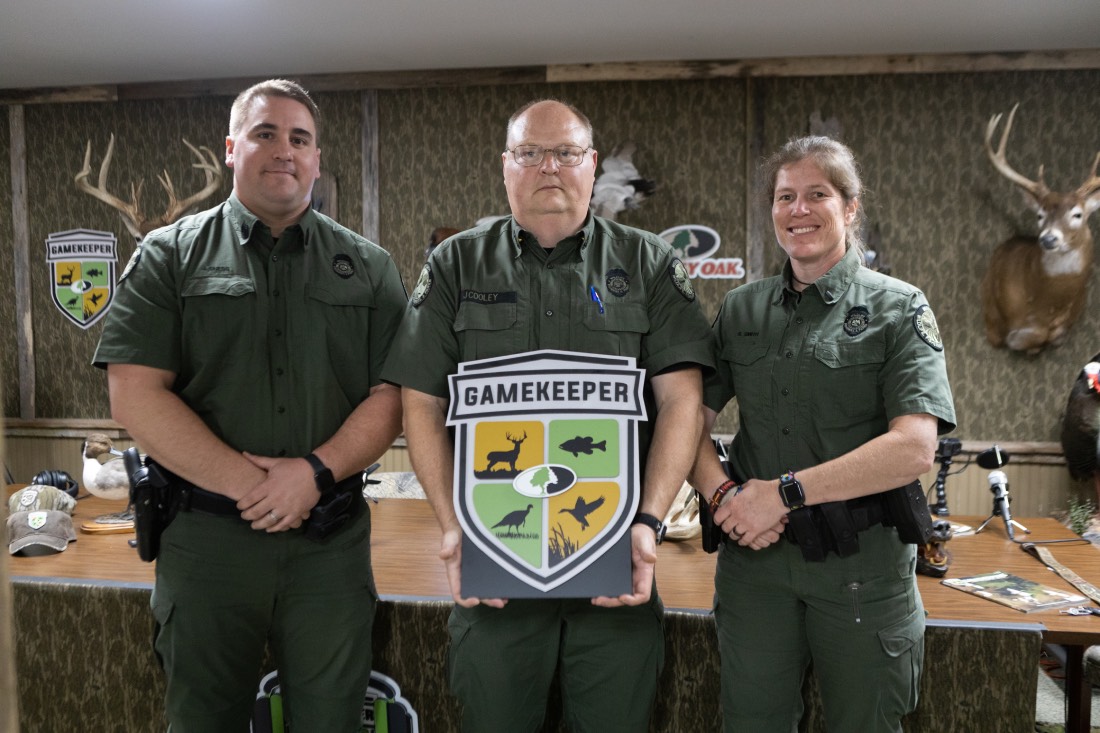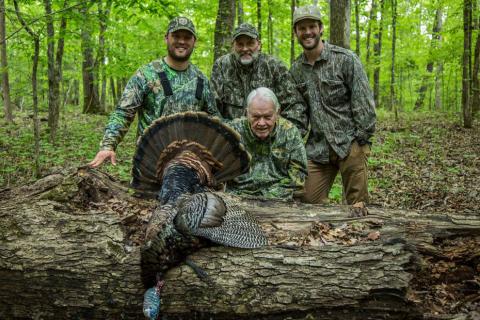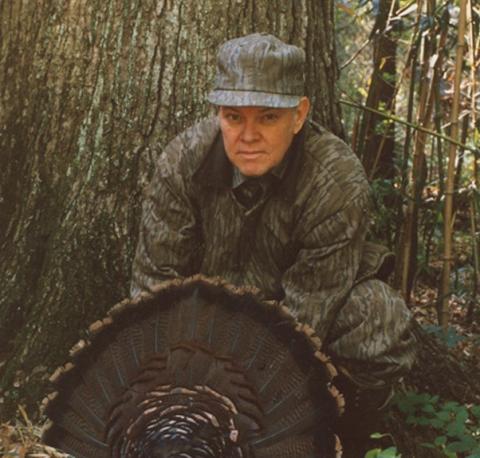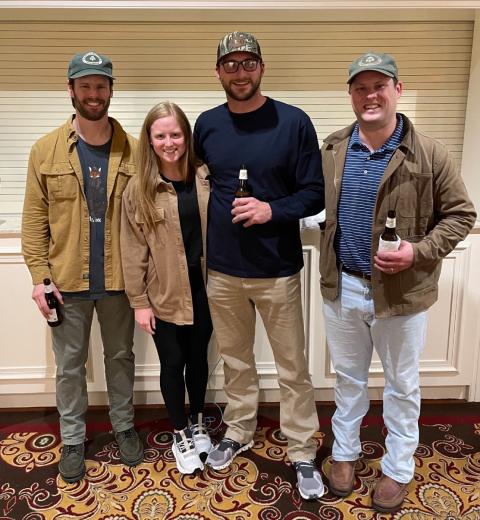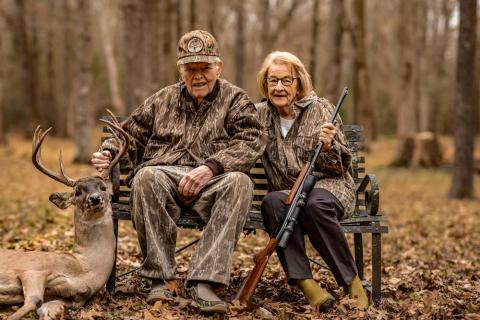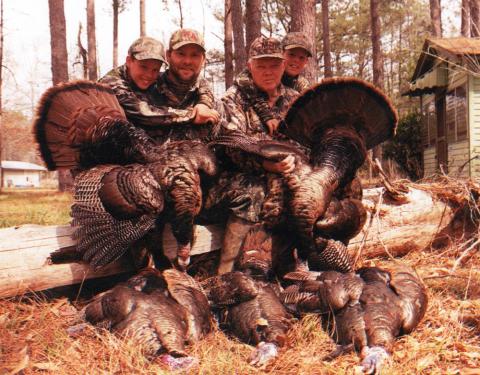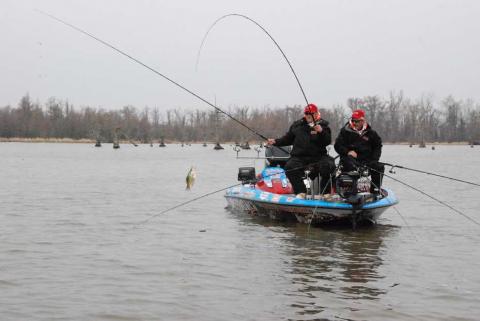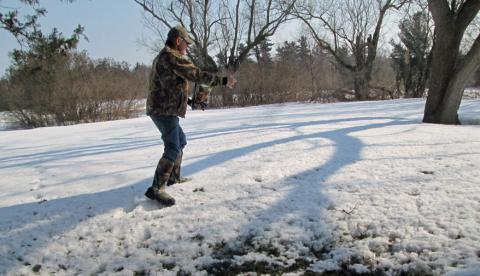Written by Jessi Cole
Photography from the recording of the Gamekeeper Podcast featuring the story of the turkey poaching ring. Pictured from left to right: Jake Guess, Randy Cooley, and Sheila Smith.
As Gamekeepers and as proponents of the wild turkey, any occurrence of poaching or overkilling turkeys is not just a criminal offense. It’s an egregious slap-in-the-face to the entire efforts of those who have been working to restore the wild turkey population.
Mississippi Department of Wildlife, Fisheries, and Parks’ Lieutenant Sheila Smith, Master Sergeant Randy Cooley, and Sergeant Major Jake Guess work to prevent just that. They work to protect the wildlife population from those too careless to be respectful of the law or of the animal.
In Franklin County, Mississippi, a population of less than 9,000, the Sheriff’s office has 3 full time officers, including the sheriff himself. In the area, there is usually only two game wardens assigned per county.
The rural Southwest Mississippi county was the perfect breeding ground for a highly organized ring of poachers to emerge.
Randy, Jake, and Sheila began to hear whispers in the community about the poaching ring; especially of the ring leader, 50-year-old Kenneth Ray Britt Jr. of Wesson, Mississippi.
Randy says, “Everyone always talked about how many deer he killed, how many turkeys he killed. They looked up to him as a hunting role model. He was a poachers’ legend; the people he carried along with him began using the outlaw traits that he was teaching them.”
Along with Kenneth, three other key players were identified as Tony Smith, Dustin Treadway, and Barney Bairfield.
From these four main poachers, a support system of 10-11 other people worked together to provide drop-offs and pick-ups to and from their target private lands.
Randy says, “This was not one of those fly-by-night things. This was plotted out.”
The ring was well coordinated and knew how to play it safe and smart. They would park their trucks where they did have permission to hunt, maybe a small 40 acres somewhere or public land, and one of the group would pick them up from that spot and then drop them off where they really wanted to hunt—which was usually private land spanning a few thousand acres.
And they didn’t choose just any private land—they targeted land that they knew was being managed for turkeys. Land where the owner cared.
In one case, a man managing his land for turkeys was confounded at the difficulty he was facing in his recent seasons. His turkeys were more educated, more wary of calls; he didn't understand how they could have become so much more difficult to hunt in recent years.
As everything in the turkey poaching ring came to light, he realized that his land was one of their targets; they were killing several turkeys a year from his property alone and also educating other turkeys left in the wake.
He was just one of many victims, and several land owners were close to catching them on their property to no avail; a person in the ring was always ready to pick up the poachers in case of emergency.
According to Randy, “This went on for years, but we never could tie everything together to get what we needed for a search warrant.”
In 2019, after a member had bragged to someone outside the ring about his turkey kills, the officers had enough probable cause for three search warrants. They couldn’t just serve the warrants at any point, though, they all needed to be home and all served at the same time so that communication to each other wouldn’t be possible; they couldn’t warn the others to hide evidence.
So, on Easter Sunday, the officers made their moves. They coordinated a team across the three houses and with 20 officers and 3 teams, they hit each residence simultaneously. The warrants were all served within minutes of each other.
Here is where the real work began. They seized media devices and anything that would contain evidence of illegal hunting activities. Cell phones, laptops, game cameras, memory cards—these were all seized and collected. In total, it was around 80 memory cards, 25-30 game cameras, several phones and computers, and a few card readers.
They divided and conquered, going through every bit of text history, call history, photos—anything they could use to prove they had killed animals illegally. It took them several months and lots of tedious manpower, but they began to uncover more and more evidence and piece together what they needed to charge the entirety of the poaching ring.
Because Mississippi has a two-year statute of limitations on wildlife violations, they focused on amassing evidence for the 2018-2019 hunting seasons.
Sheila says, “The whole thing started out in Lincoln County, but once we began the investigation we realized 5 counties in Mississippi were involved. And once we got to looking at the evidence we realized they were killing in Nebraska and Kansas as well. That’s when we brought in the feds to help with the case.”
Amidst investigation, they discovered that three of the main poachers had killed 26 turkeys in Nebraska and Kansas in just three days. Texts revealed that they had a contest amongst themselves to see who could kill the most—the “winner” killed 9 turkeys.
And in Mississippi, their home territory, the officers were able to prove about 70 turkey kills from February to April on 15 pieces of private land. “Prove” being a key word here, as there were plenty of turkeys kills that weren’t charged due to questionable evidence.
Sheila says, “Knowing what’s going on as an officer and proving it in court are two different things.”
And these officers were working to ensure these men were found guilty. They left no room for doubt in the court, no room for them to get away with anything because of court proceedings.
After months of research and months of fitting together every puzzle piece, the officers nailed the poachers with charges of nearly 100 illegal turkey kills across Mississippi, Kansas, and Oklahoma in the 2018-2019 season. One person killed 16 turkeys in the span of two months alone, another poacher 15.
“Operation Longbeard,” the official moniker for the investigation, is regarded as the largest wild turkey poaching arrest in history.
The 15 people charged racked up about $100,000 worth of fines between them, with Kenneth, the ring leader, charged with $37,354 of it. He was also banned from hunting or fishing for 5 years. Others in the ring were banned for 2-4 years. Several of the co-conspirators charged were spouses to the poachers; they were picking up and dropping off.
286 wildlife state-related charges and 12 federal charges have been filed, and the case has been closed on many of the members of the ring, but many proceedings continue today. Proceedings Sheila refers to as a “song that never ends.”
And poachers were less than remorseful in their confessions. One poacher said, “A $500 trespassing fine is cheaper than a hunting camp membership these days.”
And Sheila admits, “We’re shorthanded everywhere. If there’s only one game warden working a county, what are the odds of you getting caught trespassing? Hunting dues are so high right now; they’ll take the risk.”
Which raises the point of how little restitution and punishment there seems to be in Mississippi. Of the $100,000 in fines, only $1,000 of it is going back into the hands of the Mississippi Department of Wildlife, Fisheries, and Parks.
In Mississippi, in the case of unlawful possession charges, the higher justice court fee itself, $130, is more expensive than the actual ticket, a range of $25-100.
And take Oklahoma versus Mississippi charges, for example. In Oklahoma, if you’re caught without a tag for a turkey, you’ll be fined $2,000 and your license will be revoked for one year. In Mississippi, the same charge is a $500 fine.
Sheila says, “People always ask why we ‘stack charges.’ It’s because tickets are so cheap! We’re trying to get their attention.”
She goes on to say, “We have more hunters per capita than most states do. I don’t understand why we don’t have stricter laws.”
To a Gamekeeper and to any wildlife enthusiast, especially those passionate about the wild turkey, the punishment doesn’t seem to fit the crime. As work is done to harshen poaching laws across the country, help can be accomplished by reporting anything suspicious you see to 1-800-BESMART. It’s a 24/7 anonymous line to report trespassers, word among the community about a person killing more than is legally allowed—anything that would raise concern, no matter how small.
Captain Herrington of the Mississippi Department of Wildlife, Fisheries, and Parks says, “It’s extremely helpful for the public to be involved. Things like this are not invisible. People notice these kinds of things every year. They may think, ‘oh, it’s nothing.’ But it’s not.”
And Mississippi residents can call their senators and or the commissioners with the Department of Wildlife and request change to the current laws. It all begins with a grassroots initiative to better protect the game and fish in your area.
As for Sheila, Jake, and Randy, their hard work and devotion was acknowledged and awarded at the 2022 NWTF banquet. The National Wild Turkey Federation presented them with the inaugural NWTF CEO/Chairman Award.
According to a press release by NWTF, “The award was created to recognize a significant national or regional contribution to the conservation of the wild turkey, habitat management, public awareness, policy work or hunting heritage. The award is not an annual award and will be awarded at the discretion of the NWTF CEO and Chairman of the National Board Directors.”
When presenting the award, the NWTF CEO Becky Humphries said, “We are proud to honor Lieutenant Smith, Master Sergeant Cooley and Sergeant Major Guess, along with all of MDWFP, for their diligent and dedicated efforts to bringing justice to these poachers and working to conserve our revered wild turkey.”
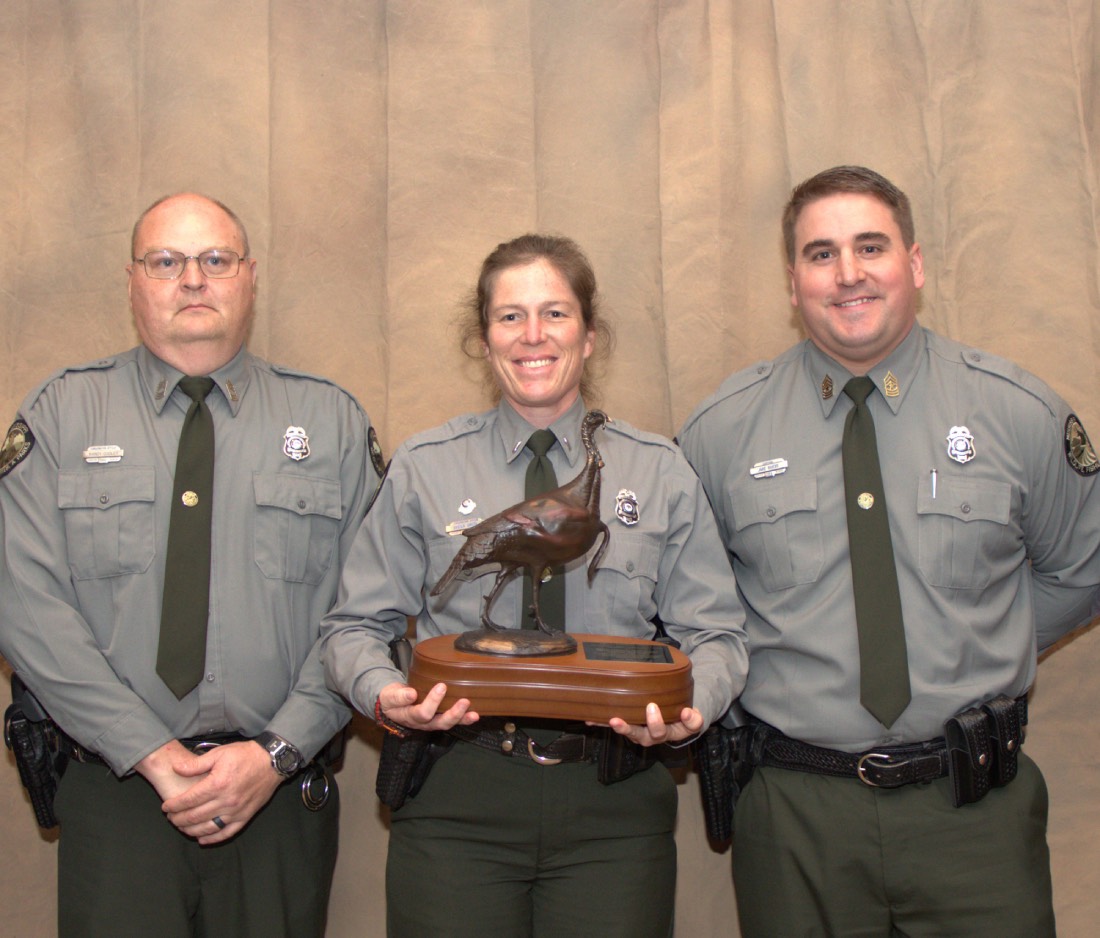
Photography from the 2022 NWTF banquet of the officers with the NWTF CEO/Chairman Award.
Mossy Oak recognizes and thanks these three officers and Gamekeepers for their tireless efforts to protect the wildlife of Mississippi, and we can only continue to do our part and work together to harshen laws and report suspicious activity.
To hear the story directly from the officers, listen to the new Gamekeeper Podcast in which the three are invited to the office to tell their tale.
If you see any suspicious hunting or fishing activity, please call 1-800-BESMART, a 24/7 anonymous tip line.

